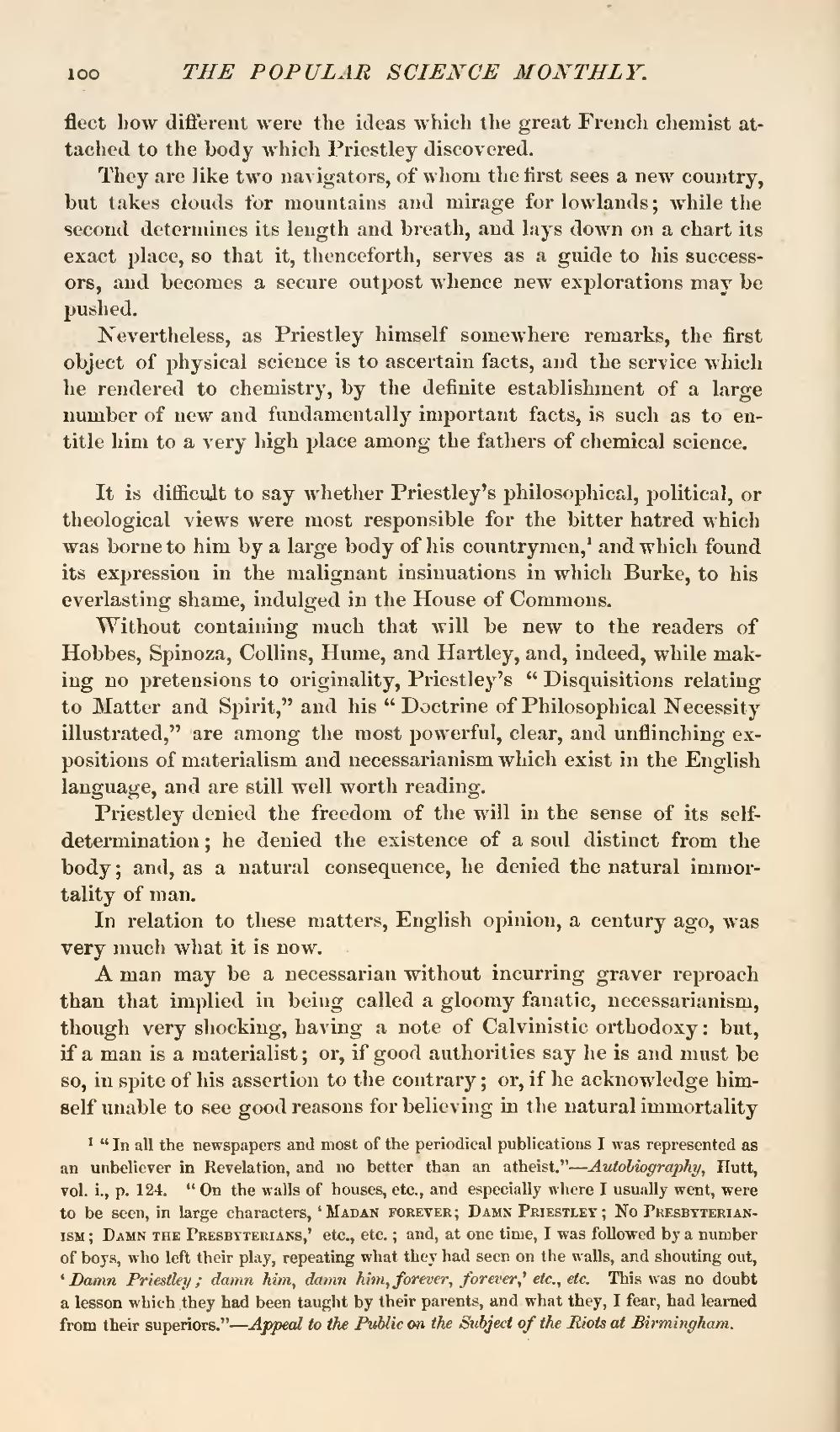fleet how different were the ideas which the great French chemist attached to the body which Priestley discovered.
They are like two navigators, of whom the first sees a new country, but takes clouds for mountains and mirage for lowlands; while the second determines its length and breath, and lays down on a chart its exact place, so that it, thenceforth, serves as a guide to his successors, and becomes a secure outpost whence new explorations may be pushed.
Nevertheless, as Priestley himself somewhere remarks, the first object of physical science is to ascertain facts, and the service which he rendered to chemistry, by the definite establishment of a large number of new and fundamentally important facts, is such as to entitle him to a very high place among the fathers of chemical science.
It is difficult to say whether Priestley's philosophical, political, or theological views were most responsible for the bitter hatred which was borne to him by a large body of his countrymen,[1] and which found its expression in the malignant insinuations in which Burke, to his everlasting shame, indulged in the House of Commons.
Without containing much that will be new to the readers of Hobbes, Spinoza, Collins, Hume, and Hartley, and, indeed, while making no pretensions to originality, Priestley's "Disquisitions relating to Matter and Spirit," and his "Doctrine of Philosophical Necessity illustrated," are among the most powerful, clear, and unflinching expositions of materialism and necessarianism which exist in the English language, and are still well worth reading.
Priestley denied the freedom of the will in the sense of its self-determination; he denied the existence of a soul distinct from the body; and, as a natural consequence, he denied the natural immortality of man.
In relation to these matters, English opinion, a century ago, was very much what it is now.
A man may be a necessarian without incurring graver reproach than that implied in being called a gloomy fanatic, necessarianism, though very shocking, having a note of Calvinistic orthodoxy: but, if a man is a materialist; or, if good authorities say he is and must be so, in spite of his assertion to the contrary; or, if he acknowledge himself unable to see good reasons for believing in the natural immortality
- ↑ "In all the newspapers and most of the periodical publications I was represented as an unbeliever in Revelation, and no better than an atheist."—Autobiography, Hutt, vol. i., p. 124. "On the walls of houses, etc., and especially where I usually went, were to be seen, in large characters, 'Madan forever; Damn Priestley; No Presbyterianism; Damn the Presbyterians,' etc., etc.; and, at one time, I was followed by a number of boys, who left their play, repeating what they had seen on the walls, and shouting out, 'Damn Priestley; damn him, damn him, forever, forever,' etc., etc. This was no doubt a lesson which they had been taught by their parents, and what they, I fear, had learned from their superiors."—Appeal to the Public on the Subject of the Riots at Birmingham.
